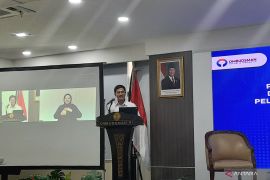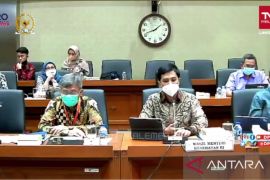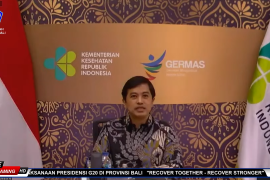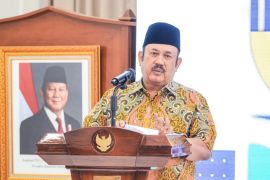"We are sticking to the Sustainable Development Goals (SDGs) that by 2030, the obesity rate in Indonesia will be 3 percent. Therefore, education at the community level must be carried out massively," he said during a discussion entitled "The Dangers of Early Obesity, What is the Solution?" in Jakarta on Monday.
He informed that one of the efforts made by the government to reduce obesity is the provision of a tax on food containing processed sugar, salt, and fat (GGL) that exceeds the threshold.
"We are discussing the possibility of taxing packaged food containing GGL that exceeds the limit. This is one of our efforts to achieve the 2030 SGDs," Harbuwono added.
Based on the results of the 2013 Basic Health Research (Riskesdas), he said the obesity rate in Indonesia was around 15.3 percent and increased to 21.8 percent in 2018.
"There has been a drastic increase in obesity in society," he added.
He said that obesity in children contributes to the double burden of malnutrition because it can coexist with stunting.
"We realize that we were experiencing a double burden of malnutrition. On the one hand, we have a stunting problem, and obesity, on the other hand. Both need to be treated to reduce the number of cases," he explained.
He then said that supervision of children's snacks at school must be strengthened to reduce obesity, including by applying a registration requirement on products made by micro, small, and medium enterprises (MSMEs).
"This sector has not received enough attention. Not all MSMEs' products are registered. Most children buy food and snacks from vendors outside their school yet the food has not been registered," he pointed out.
Besides diet, he said that genetic factors also affect the level of obesity in children.
Harbuwono emphasized that the parenting style in the family is the most important thing to reduce the number of obesity cases, particularly parents educating their children regarding safe and nutritious food and drink intake.
"We need to educate people to be smart eaters. Before buying and eating food, please make sure (to check) the calories. Then parents can calculate how many calories will be given to their children," he said.
Related news: Jakarta strives to control obesity through health promotion
Related news: Ministry to maintain obesity prevalence at 21.8 percent until 2024
Related news: Ministry encourages excise tax on GGL-dense products to tackle obesity
Translator: Andi Firdaus, Resinta S
Editor: Azis Kurmala
Copyright © ANTARA 2023












